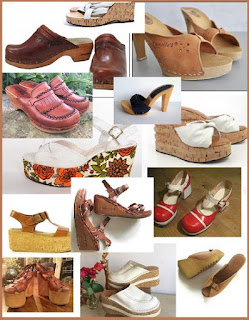 Do you always give your partner/family/friends happy birthday wishes? I used to get them, but these days I wouldn't miss them. I'm too old! Well, not "too" old, but a lot older than I was 30 years ago (get that??). Okay, I'm not fed up with my age, but I am - was - still am - fed up with aphasia after my stroke, which happened under the "usual" age. I was told by the hospital that I was "young". I was 57. Is that how you feel when you look at your mum or grandma or aunt or someone older than you in hospital after a stroke? How old were they?
Do you always give your partner/family/friends happy birthday wishes? I used to get them, but these days I wouldn't miss them. I'm too old! Well, not "too" old, but a lot older than I was 30 years ago (get that??). Okay, I'm not fed up with my age, but I am - was - still am - fed up with aphasia after my stroke, which happened under the "usual" age. I was told by the hospital that I was "young". I was 57. Is that how you feel when you look at your mum or grandma or aunt or someone older than you in hospital after a stroke? How old were they? Do you know the youngest age for a stroke? A New York Times blog had an article written by Jane E Brody on 3 September 2012, titled "Too young to have a stroke? Think again". Writers to caring.com asked questions about the age of stroke on 12 November 2016, titled "Are strokes at a young age common?". It's very similar in Australia. Brain Injury's pdf file on young who suffer stroke, titled "Position Paper: Young Stroke", say that the "first time event occur[s] between the ages of 18 and 64". Australian Bureau of Statistics (ABS), while their article was dated 2009, said that only 30% of those having a stroke would be under the age of 65.
Maria Lewis wrote an article for SBS, the Australian channel. She was 22 when she had her stroke. There's a video at the beginning of the article which started with Luke Webb - he was 20 when he had his stroke.
The 2009 ABS article (linked further up) showed 9 impairments from stroke. The aphasia, which I suffered, was the 4th lowest, but there were still nearly 30% of people who had a stroke who suffered that. Physical impairment was just about up to 60%, and happening just a little more to women than men. What it doesn't say is how many people who had a stroke are very quickly back to "normal".
3% of those who had it might die.
I encourage everyone who reads this to pass it on and share it with your partner/family/friends/workers. You need to know more about stroke, need to understand how people suffer after their stroke, need to know the websites where you can get much more information just in Australia. The most important (for me) are listed.
Stroke Foundation: their home page says they are "a national charity that partners with the community to prevent, treat and beat stroke. We stand alongside stroke survivors and their families, healthcare professionals and researchers. We build community awareness and foster new thinking and innovative treatments. We support survivors on their journey to live the best possible life after stroke. We are the voice of stroke in Australia..."
Synapse: looks after brain injuries which includes stroke. The website says "Our commitment to reduce the massive unmet need for these services is unwavering. Our objective to see specialist and individualised services available to all in need is resolute. No matter where they live, or culture they belong to." Synapse has a pic of their current magazine, "Bridge", number 22, which has stories from stroke survivors. Read them!
Australian Aphasia Association: this is a non-profit association which started in 2002. They say they are "a support and advocacy association for people with aphasia, their families and the professionals who help them."
Check those ones. There are plenty more throughout Australia but these are the organisations I've been involved with. One more I've chosen to add to the list is the Australian Aphasia Rehabilitation Pathway: came into being in 2014. Their website says they are "for speech pathologists to help guide person-centered, evidence-based aphasia services. It aims to optimise the overall rehabilitation journey for people with aphasia and their families/friends."
I truly hope that everyone who reads this will educate themselves on stroke. It can happen to 2% of the whole population, even younger people. Maybe one day it can happen to you.
Educate yourself.








